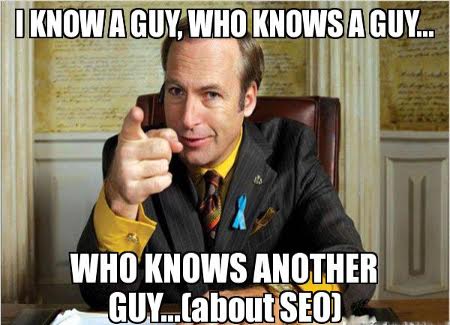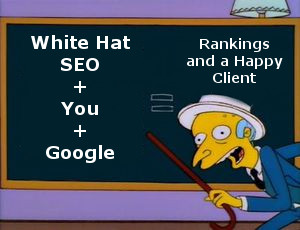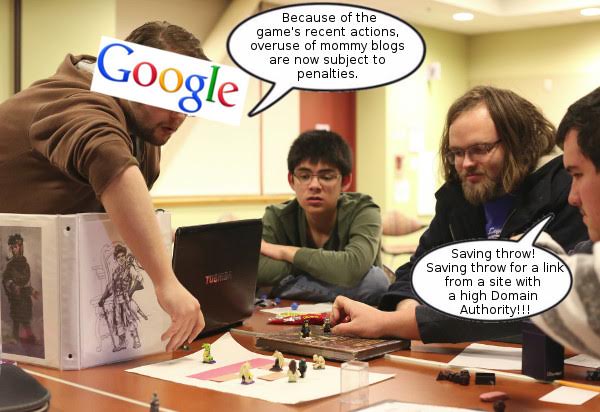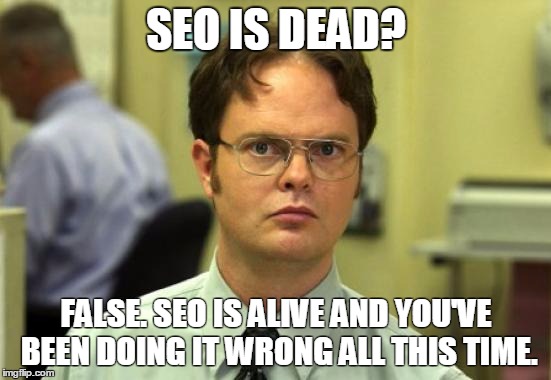Search engine optimization (SEO) can be a very broad practice. From on page optimization to technical audits, local citation cleanup and international hreflang implementation, SEO can be a lot to handle. That’s especially true for people not “in-the-SEO-know.â€
So how, as someone in the weeds of SEO day in and day out, can you learn to bridge the gap of understanding with your clients, friends, partners, colleagues (and anyone else you work with) to explain what you do and help them understand the importance of SEO for themselves? SEO touches all of us, after all, and that’s true whether you’re someone who hopes to gain business from your website or just uses Google everyday to make searches and could benefit by understanding how results are delivered.

Explaining SEO to non-SEO people should be simple yet informative. It should help them get a precise yet understandable grasp of what the industry is and what is your involvement is in it.
I’ve personally experienced this situation many times before and have informed my friends of my position as a SEO specialist. At first, it was hard to explain, but since the situation came up from time and time, it became easier for me to explain it all. From that, I was able to develop a method of explaining SEO to non-SEO people.
Basically, when explaining SEO to those outside of the industry, you just need to do a few things.
1. Explain SEO in a language that they will understand.
2. Explain why SEO is necessary in this day and age.
3. Explain the specifics of SEO in a simple manner.
  If you follow my lead, you won’t hesitate in explaining what you do for a living.
 If you follow my lead, you won’t hesitate in explaining what you do for a living.
1. Explain SEO in a Language that Non-SEO People Will Understand
First off, you must know who you are talking to when you are explaining SEO.
For example, my real life non-SEO friends and I play a lot of games together, particularly Dungeons and Dragons. If I was to explain SEO to them, I would have to explain the subject to them while using DD terms (like goblins and dungeon masters) and compare them to Google terms (webspam and manual penalties).

Of course it’s a bit different when you’re talking about SEO in a professional environment. However, it’s not that difficult as long as you employ the same tactic and know where that person is coming from.
For example, let’s say you have a potential client that sells farming equipment and he knows nothing about SEO. The reason why is because his company grew so fast that he didn’t have much time to work on his website, but he understands the importance of a web presence. Just from knowing that small amount of information, you can easily figure out how to adjust your approach, explain SEO to him, and illustrate why it could be beneficial to his bottom line.
SEO can be easily understood by anyone as long as you put it in a language that they will understand.
In this case, you would say that SEO is like ongoing maintenance of a tractor and building good links is like farming for the right kind of crops. By optimizing his site to be found by people asking questions online about his industry and type of equipment, he can be on the end of someone’s search…and potentially find a new avenue for driving business. Most likely from that small, personalized explanation, the client grasp the concepts you explained and be more open to the idea of SEO.
As you can see, SEO can be easily understood by anyone as long as you put it in a language that they will understand. There’s no need for the industry’s big words or phrases.
2. Explain and Show Why SEO Is Necessary in This Day and Age
Most of the time, even after an understandable explanation of SEO, you will have some doubting Thomases. They’ll shrug it off and say it’s just another business fad that will soon be replaced with X industry or that “Google will take care of everything sooner or later.â€
  Mainly these doubters exist because they don’t understand SEO fully, or they’ve seen how SEO failed them in the past (most likely they were witnessing it before the Google Penguin update of 2012). Still, you can convert those doubters by showing them the benefits of SEO.
 Mainly these doubters exist because they don’t understand SEO fully, or they’ve seen how SEO failed them in the past (most likely they were witnessing it before the Google Penguin update of 2012). Still, you can convert those doubters by showing them the benefits of SEO.
Let us say that the doubter in this situation owns a local auto repair shop in Chicago that specializes in hydraulic installation. Ask him this simple question:
“What would someone be searching for to find your shop in Google? Give me exact words and phrases.â€
Most likely the doubter will say something like “hydraulic installation in Chicago.†He thinks he’ll be at the top of the list, but as soon as he conducts this search and sees he’s not on page 1, 2 or even 3, his confidence will drop like a stone. Most likely he’ll see a competitor who he hates and say:
“Why is my competitor’s chain on the top of the list?! He’s a jerk and does low quality work!â€
That’s when you tell him that most likely that “jerk†has some things going for him:
- Good links leading to his site.
- Well optimized on-page content.
- Intentional H1 tags and meta descriptions.
- Optimized images, videos, and other rich media.
- Content with titles based on search intent.
You then do a compare and contrast of the competitor’s site to the doubter’s site and show them exactly what they’re missing on their own site. Because the competitor capitalized on these important behind the scenes and on-page elements, he’s getting more business than the doubter.
There’s no better way to have a message land than by showing someone what a competitor is doing better.
From that, you have showed the doubter why it’s beneficial to have quality SEO for their website. And there’s no better way to have a message land than by showing someone what a competitor is doing better.
As long as you show the benefits and the results of good quality SEO, you can convince people why your job is crucial in the world of business and elsewhere.
3. Explain the Specifics of SEO in a Simple Manner
Now that our non-SEO friends and others see the benefits of optimization and you are talking at a level that they will understand, you’ll still most likely have to explain what you do specifically in the world of SEO.
 Â
Â
“An animated depiction of what schema coding is like.â€
The SEO industry is rapidly evolving and involved a vast scope of specialties. Many different people have many different positions in SEO. My personal title is “SEO Specialist,†meaning I know all general aspects of SEO. However, what isn’t included is that my main focus is on analytics, on-page optimization and auditing for our clients.
When explaining what you do specifically to a non-SEO person, it’s best to keep it simple. Just give them a cliff notes version of that specialty.
- If you deal with content creation, say that you create content for a client (on their site and/or off their site) that is optimized for search intent and may contain links that can lead Google and potential visitors to your client’s site.
- If you are involved in auditing and optimizing, say that you survey a client’s site and make it look better for both visitors and in the eyes of search engines.
- If your main focus is link building, say that you reach out to certain high ranking sites (like colleges, government pages, and news sites) and ask them to implement a link that leads from their site to your clients site, all while keeping it organic and within the site’s context.
- And if you’re dealing with analytics, say you’re doing the research and development, so that you and your team members can use that data and improve your website as well as your clients’ sites.
There any many other parts of SEO that you can explain to your non-SEO friends, colleagues, clients, or partners. With a fast-evolving industry, those of us “on the inside†must always remember to bridge the gap of understanding that may be out there, for both your benefit and the benefit of the people you communicate with. As long as you follow the model above, those outside of the loop will understand.
Always remember to bridge the gap of understanding that may be out there, for both your benefit and the benefit of the people you communicate with.
As you can see from above, explaining SEO to non-SEO people isn’t that hard. All you need to do is put it in a language that they’ll understand, see why it’s beneficial and explain the details of SEO in general. If you can get those points across, they won’t be looking at you with that odd look of confusion. Instead it will be a thumbs up of approval.

Article source: http://www.verticalmeasures.com/search-optimization/explaining-seo-to-non-seo-people/
